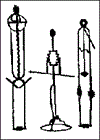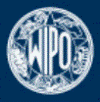
Center for Indigenous Knowledge for Agriculture and Rural Development
www.ciesin.org/IC/cikard/CIKARD.html
CIKARD focuses on preserving and using the knowledge of farmers and rural people around the globe to facilitate participatory and sustainable approaches to development. The Center was established at Iowa State University in October 1987. Its goal is to record indigenous knowledge and make it available to local communities, development professionals, scientists and scholars. CIKARD concentrates on four areas: indigenous innovations, knowledge systems (such as taxonomies), decision-making systems (such as what crops to grow on certain soils), and organizations (such as farmers' groups).
Subject(s): Traditional Knowledge, Innovations and Practices - Article 8(j)

Centre for Agriculture and Biosciences International
www.cabi.org
CABI is a not-for-profit organization specialising in scientific publishing, research and communication. CABI improves people's lives worldwide by providing information and applying scientific expertise to solve problems in agriculture and the environment
Subject(s): Agricultural Biodiversity; Invasive Alien Species; Traditional Knowledge, Innovations and Practices - Article 8(j); Biodiversity for Development

Centre for Indigenous Environmental Resources
www.yourcier.org
The Centre for Indigenous Environmental Resources, Inc. (CIER) is a First Nation owned and directed environmental non-profit organization, based in Winnipeg, Manitoba, CANADA. CIER believes that sustainable forestry development is a viable venture for long-term economic development and employment for some First Nations. CIER has experience and expertise in certified forestry assessment, forest inventory, environmental assessment, forest management planning, integrated resource management planning, GIS - GPS - infra-red remote sensing, resource management planning, non-timber forest products, and eco-tourism.
Subject(s): Forest Biodiversity; Traditional Knowledge, Innovations and Practices - Article 8(j)

Coordinadora de las Organizaciones Indígenas de la Cuenca Amazonica
www.coica.org.ec
COICA invited 15 representatives from 12 environmental groups to the "First Summit Between Indigenous Peoples and Environmentalists" in Iquitos, Peru. Ten human rights and aid groups, Cultural Survival among them, were invited as observers. The meeting provided an opportunity for indigenous peoples and environmentalists to understand each other's concerns. Both sides attempted to establish a joint strategy for conserving the Amazonian rain forest by supporting indigenous claims for control of their territory and resources. The groups that attended agreed and signed the document called the Iquitos Declaration
Subject(s): Traditional Knowledge, Innovations and Practices - Article 8(j)

Indigenous Environmental Network
www.ienearth.org
The Indigenous Environmental Network is an alliance of grassroots indigenous peoples whose mission is to protect the sacredness of Mother Earth from contamination and exploitation by strengthening maintaining and respecting the traditional teachings and the natural laws
Subject(s): Traditional Knowledge, Innovations and Practices - Article 8(j)

Inter-American Commission on Human Rights
www.cidh.oas.org
The Inter-American Commission on Human Rights (IACHR) is one of two bodies in the inter-American system for the promotion and protection of human rights. The Commission has its headquarters in Washington, D.C. The other human rights body is the Inter-American Court of Human Rights, which is located in San José, Costa Rica. The IACHR has the principal function of promoting the observance and the defense of human rights.
Subject(s): Traditional Knowledge, Innovations and Practices - Article 8(j); Socio-Economic and Legal Matters


International Development Research Centre - Canada
www.idrc.ca
IDRC is a Canadian Crown corporation that works in close collaboration with researchers from the developing world in their search for the means to build healthier, more equitable, and more prosperous societies.
Subject(s): Dry and Sub-Humid Lands Biodiversity; Scientific and Technical Cooperation; Biodiversity for Development; Inland Waters Biodiversity; Traditional Knowledge, Innovations and Practices - Article 8(j)

International Work Group for Indigenous Affairs
www.iwgia.org
IWGIA supports indigenous peoples' human rights, self -determination, right to
territory, control of land and resources, cultural integrity, and the right to
development
Subject(s): Traditional Knowledge, Innovations and Practices - Article 8(j)

Swedish International Development Cooperation Agency
www.sida.se/English
Policy is responsible for global dialogue and consensue of opinion with other donors ; knowledge development and advice within Sida ; quality assurance (ensuring that improvement results are met) ; competences. Targets and missions are dertermined by Swedish government.
Subject(s): Cooperation and Partnerships; Gender and Biodiversity; Economics, Trade and Incentive Measures; Traditional Knowledge, Innovations and Practices - Article 8(j); Sustainable Use of Biodiversity; Biodiversity for Development

TerraWatu
https://terrawatu.org
Terrawatu was founded in 2000 by Dr. Tanya Pergola and Lekoko Ole Sululu to put into practice educational, health and economic development programs to promote the conservation of biological and cultural diversity.
Subject(s): Traditional Knowledge, Innovations and Practices - Article 8(j)

The American Biological Safety Association
www.absa.org
Promotes biosafety as a scientific discipline and serve the growing needs of biosafety professionals throughout the world. Its goals are to provide a professional association that represents the interests and needs of practitioners of biological safety, and to provide a forum for the continued and timely exchange of biosafety information
Subject(s): Traditional Knowledge, Innovations and Practices - Article 8(j)

The International Ecotourism Society
www.ecotourism.org
TIES promotes ecotourism, which is defined as "responsible travel to natural areas that conserves the environment and improves the well-being of local people," by:
- Creating an international network of individuals, institutions and the tourism industry;
- Educating tourists and tourism professionals; and
- Influencing the tourism industry, public institutions and donors to integrate the principles of ecotourism into their operations and policies.
Subject(s): Tourism and Biodiversity; Traditional Knowledge, Innovations and Practices - Article 8(j); Business and Biodiversity

World Intellectual Property Organization
www.wipo.int/activities/en
WIPO provides a forum for international policy debate and development of legal mechanisms and practical tools concerning the protection of traditional knowledge (TK) and traditional cultural expressions (folklore) against misappropriation and misuse, and the intellectual property (IP) aspects of access to and benefit-sharing in genetic resources.
Subject(s): Traditional Knowledge, Innovations and Practices - Article 8(j); Intellectual Property Rights; Access to Genetic Resources and Benefit-sharing